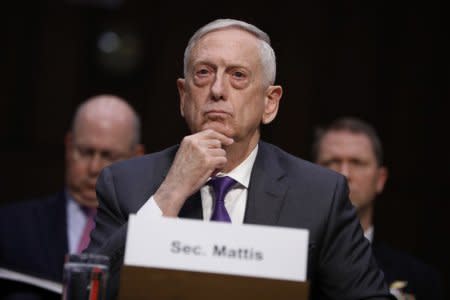Last year's ambush in Niger due to number of problems: Mattis

Thomson Reuters
WASHINGTON (Reuters) - U.S. Defense Secretary Jim Mattis said on Thursday that a report into a deadly ambush in Niger last year that killed four U.S. soldiers has found that a number of issues led to the incident.
The October ambush, which was carried out by a local Islamic State affiliate, has thrown a spotlight on the U.S. counterterrorism mission in the West African country.
President Donald Trump’s handling of condolence messages to the families of the dead U.S. soldiers has been criticized by lawmakers in Washington and raised the profile of the deadly incident.
"We have found what we believe to be the crux of the problems, not problem, but problems that contributed to this," Mattis said during a Senate Armed Services Committee hearing.
"So we know immediately how to address (those), we are doing that right now," Mattis said, adding that a delegation of authority was not one of the reasons.
Lawmakers have been provided a 200-page classified summary of the report, which is over 6,000 pages.
Mattis said the last family member of those killed in the October ambush would be briefed on the findings on Monday and officials expect a public release of part of the report soon after.
The United States has 800 soldiers operating in the largely desert nation, more than France, which has 4,000 in the wider Sahel region tackling the Islamist militancy.
(Reporting by Idrees Ali; editing by Jonathan Oatis)
See Also:

 Yahoo News
Yahoo News 
